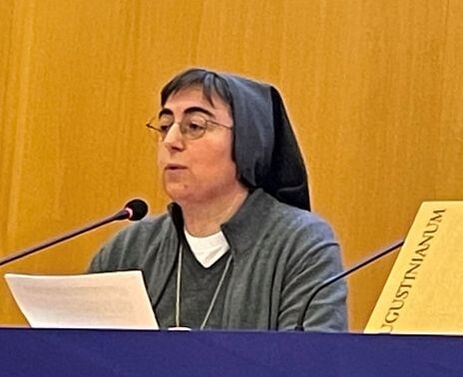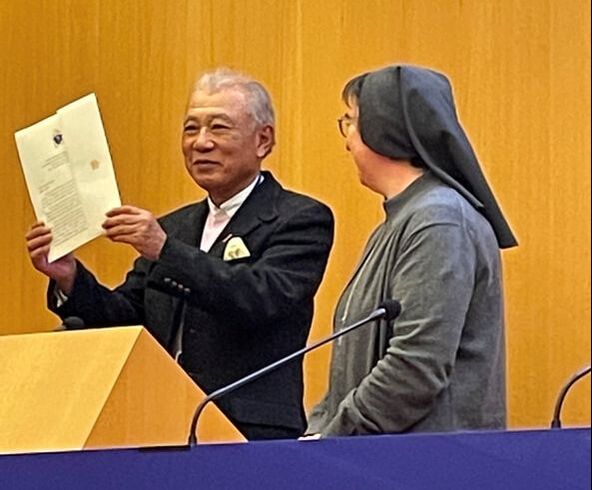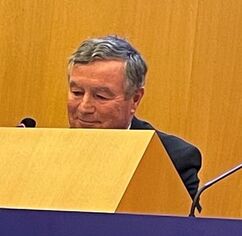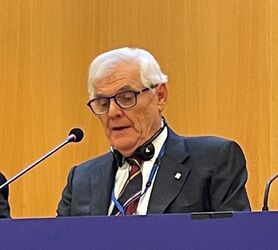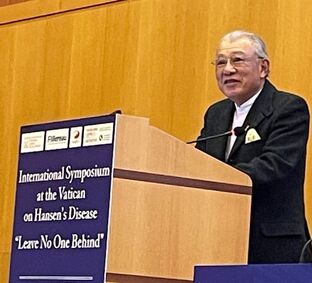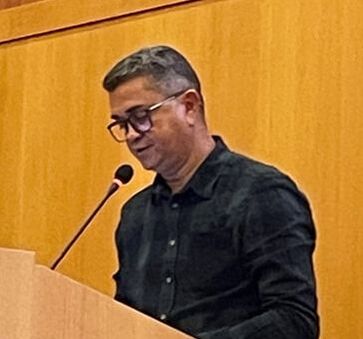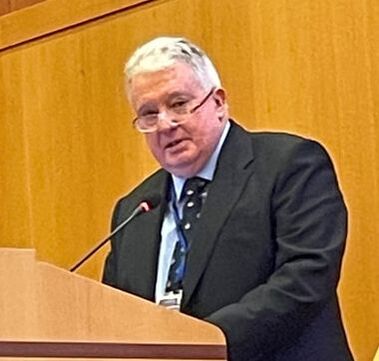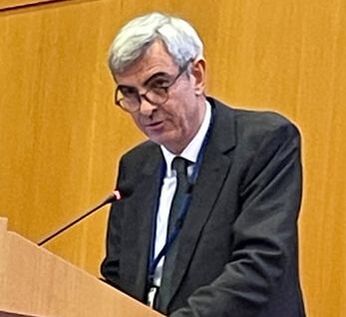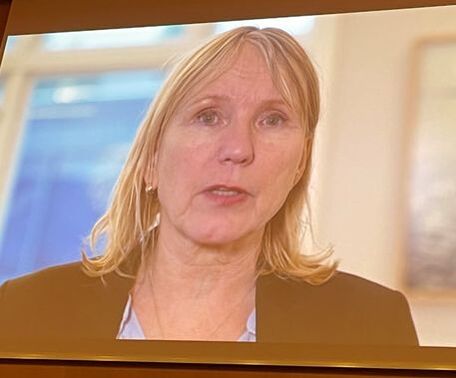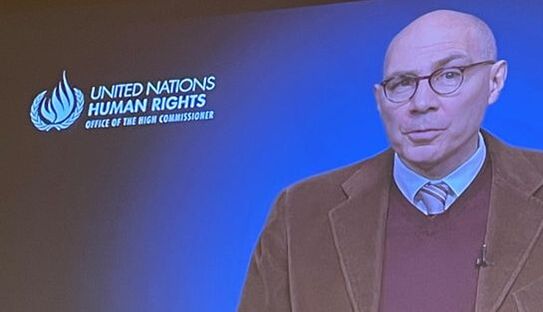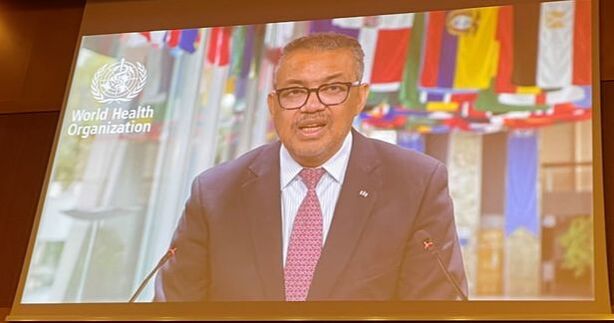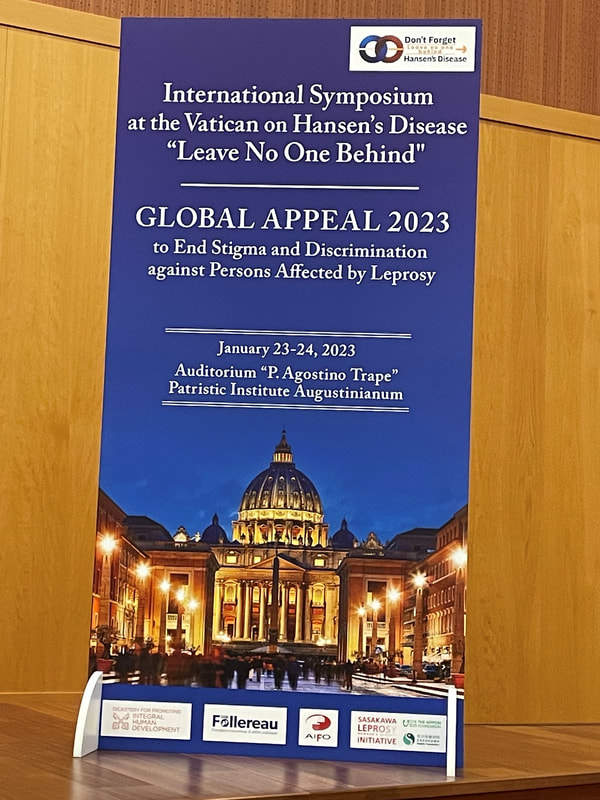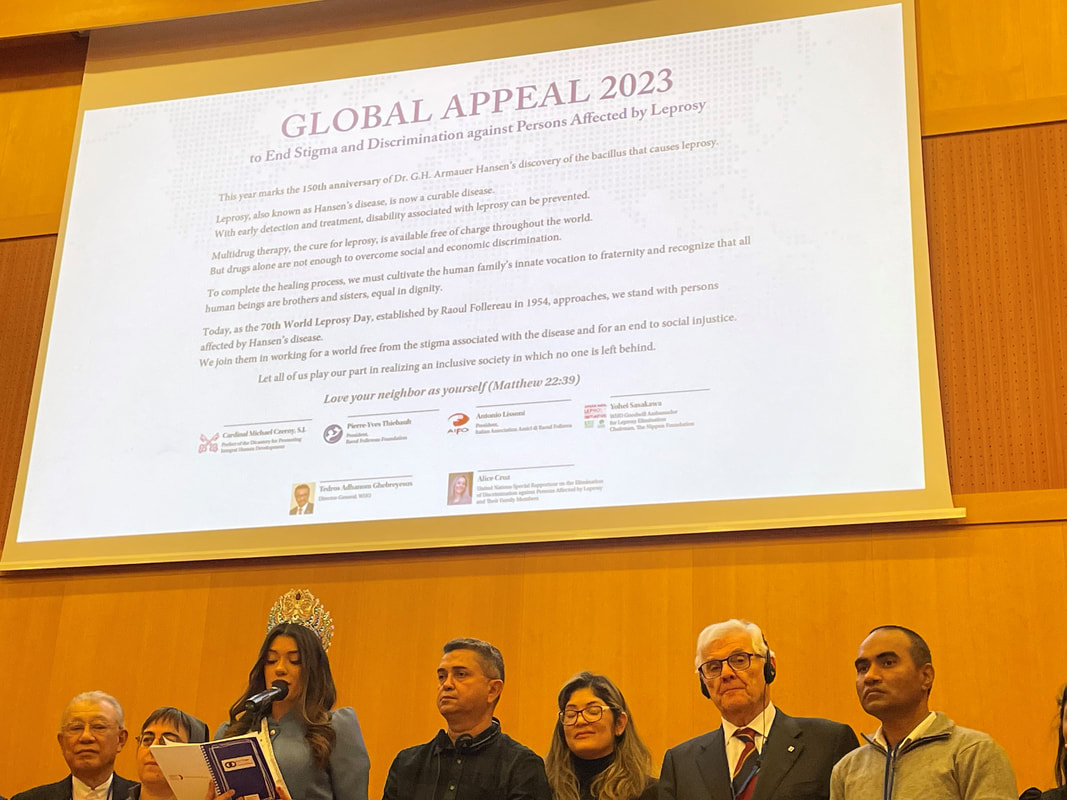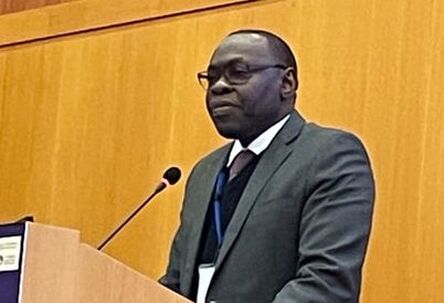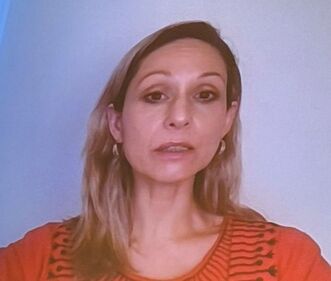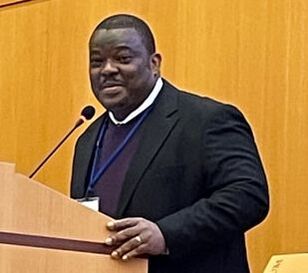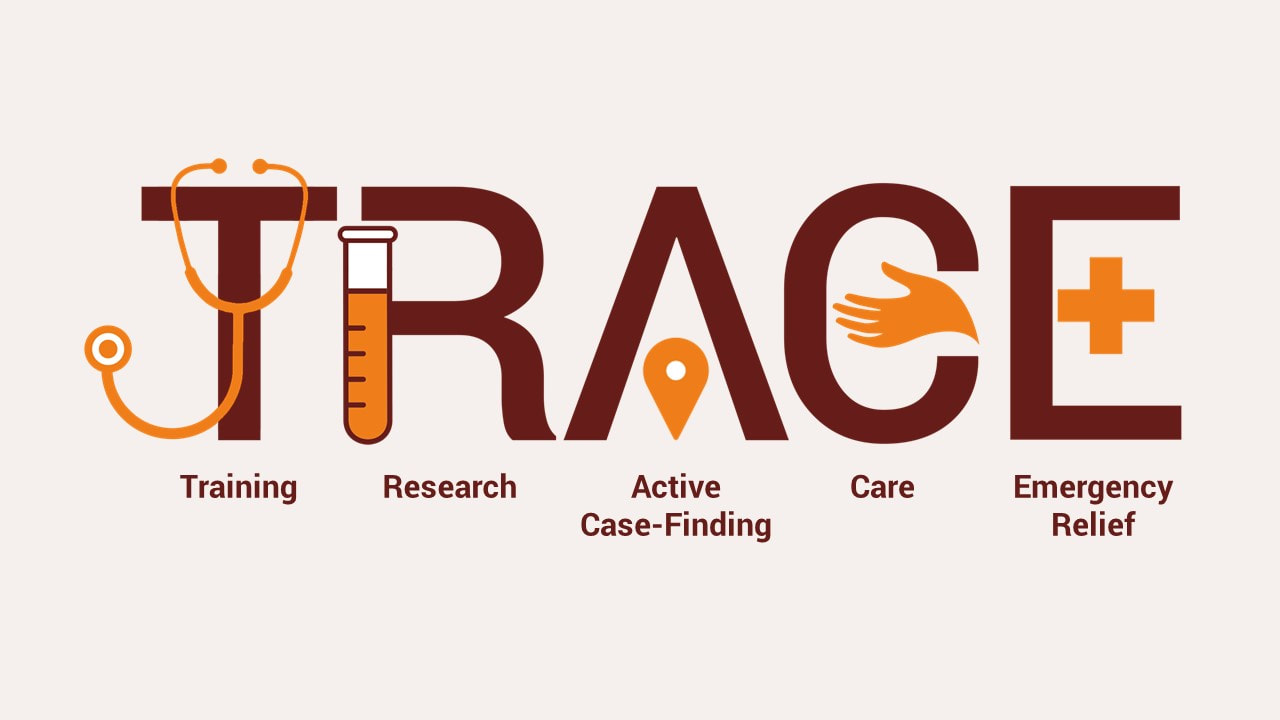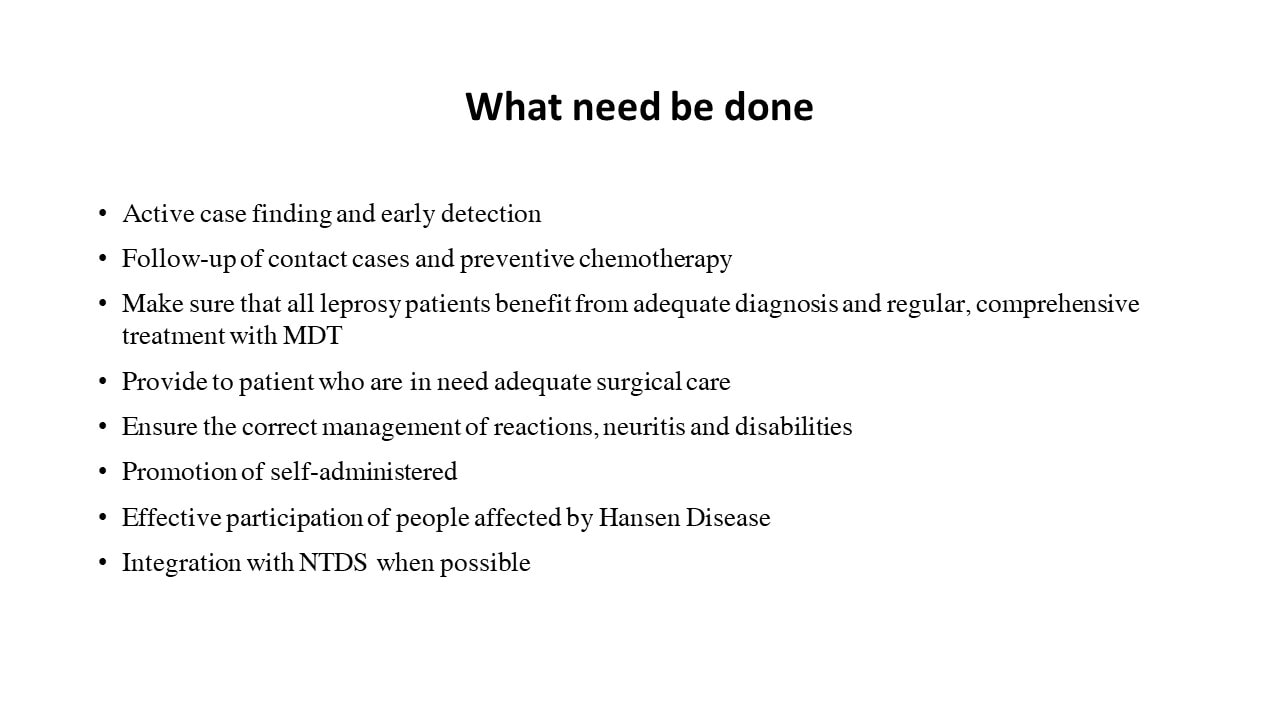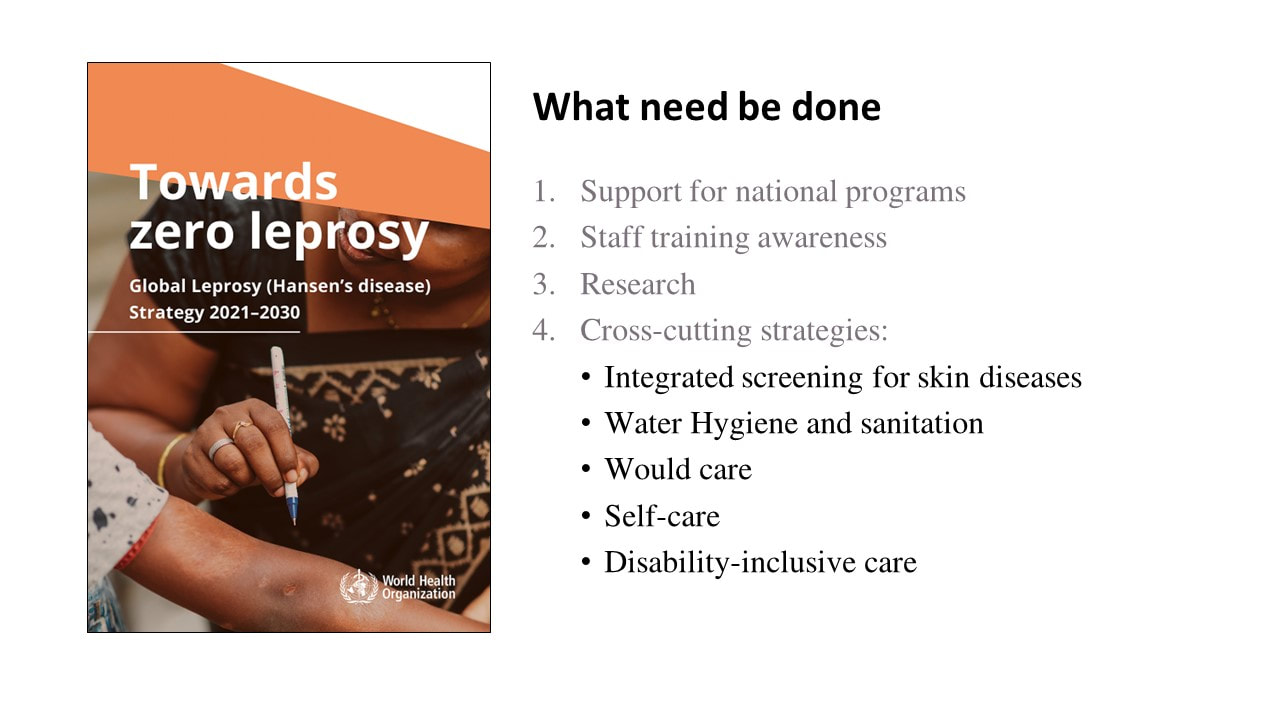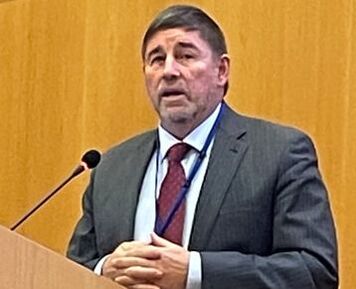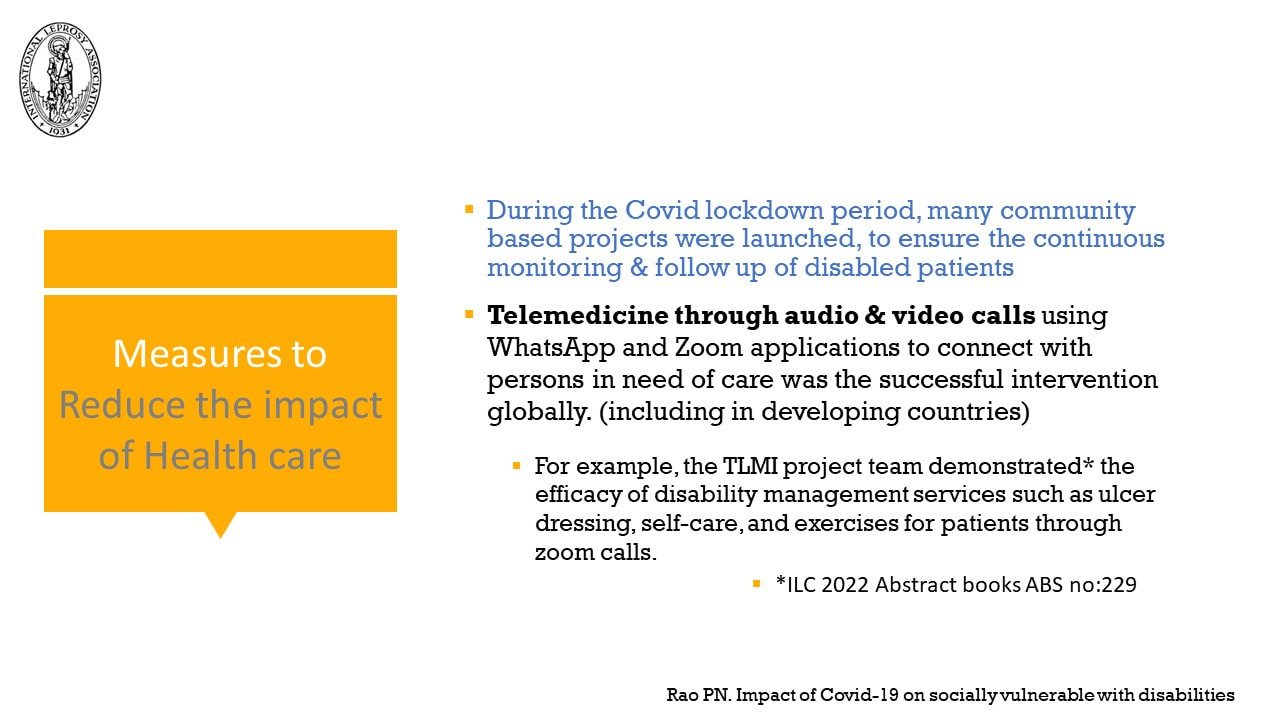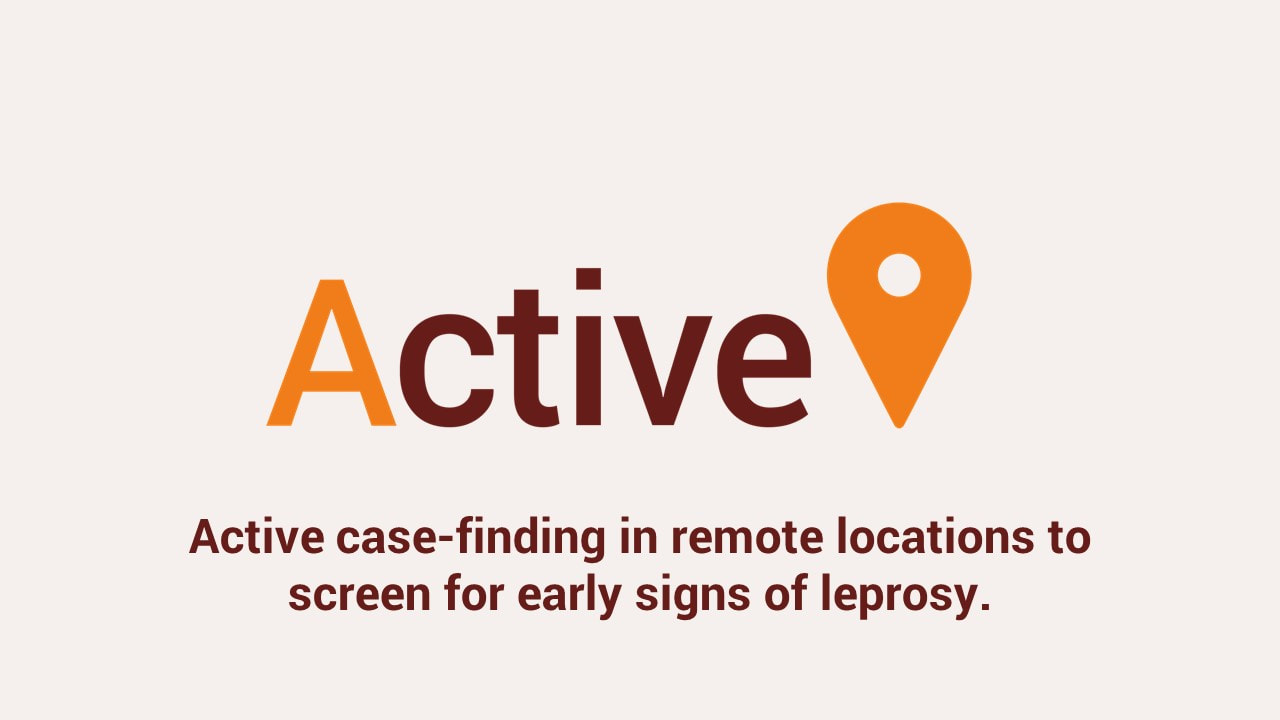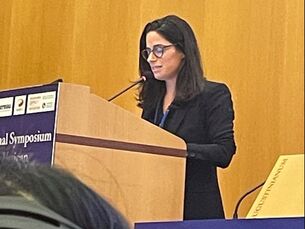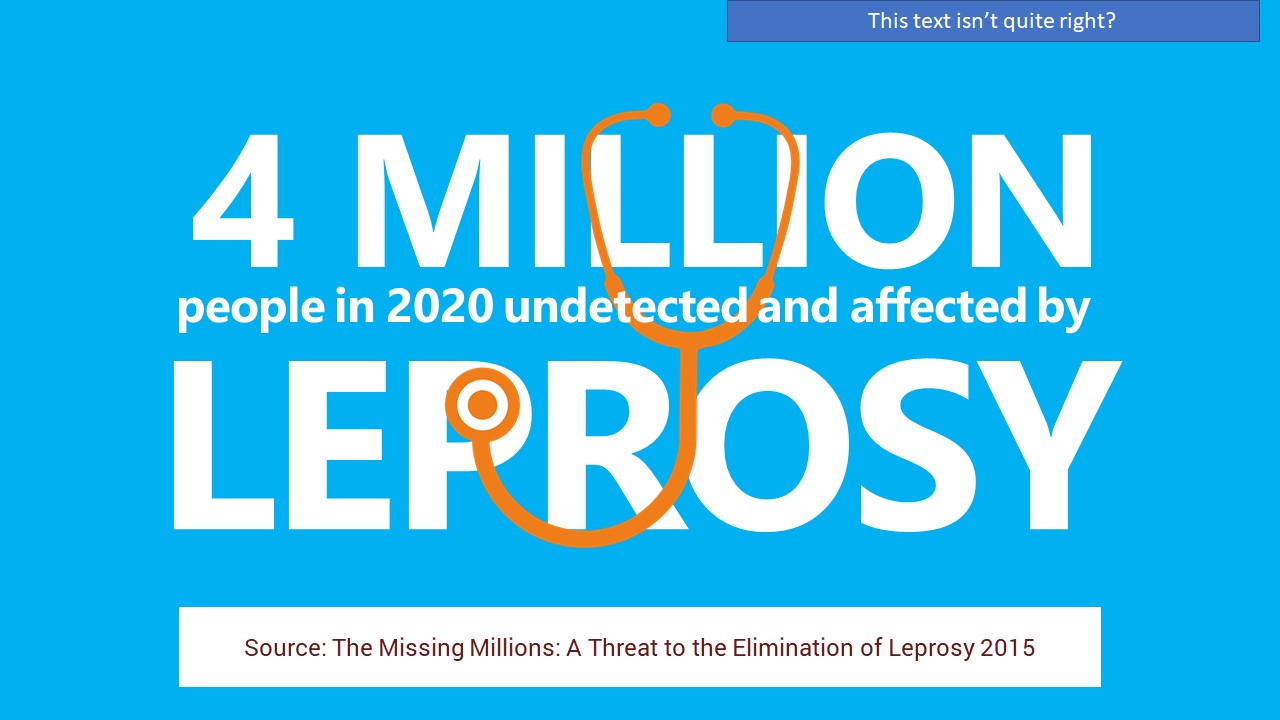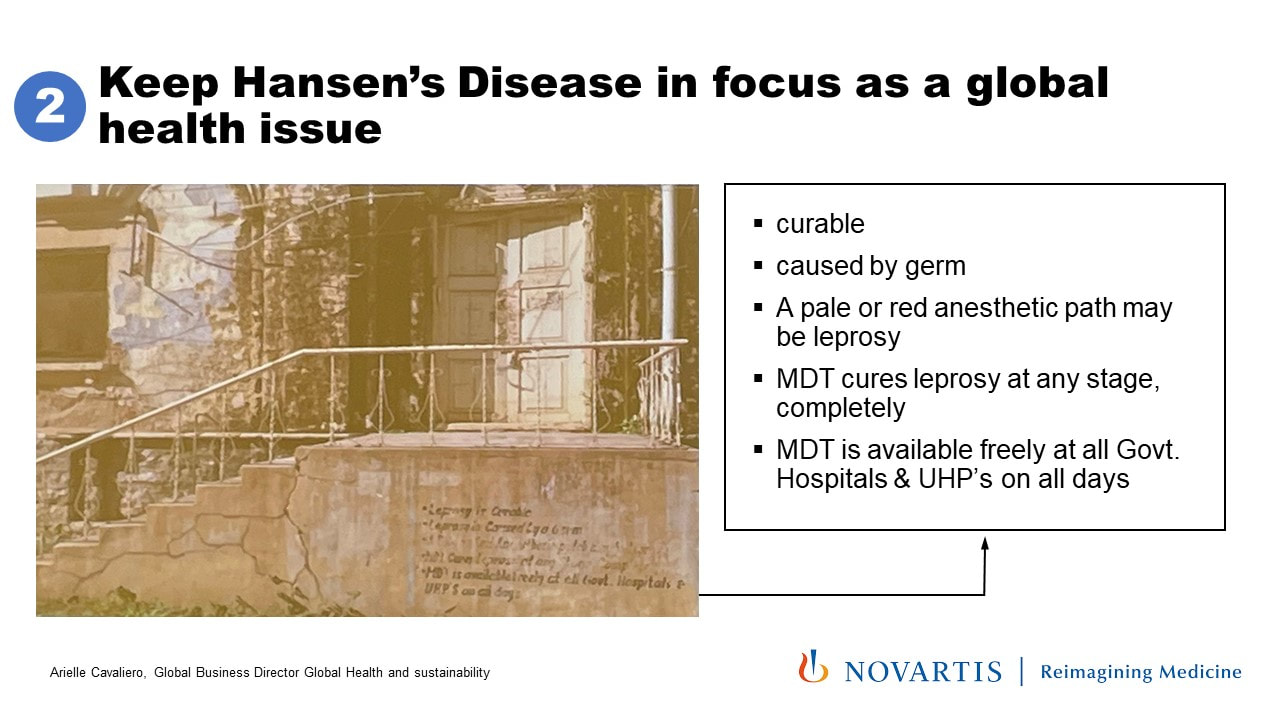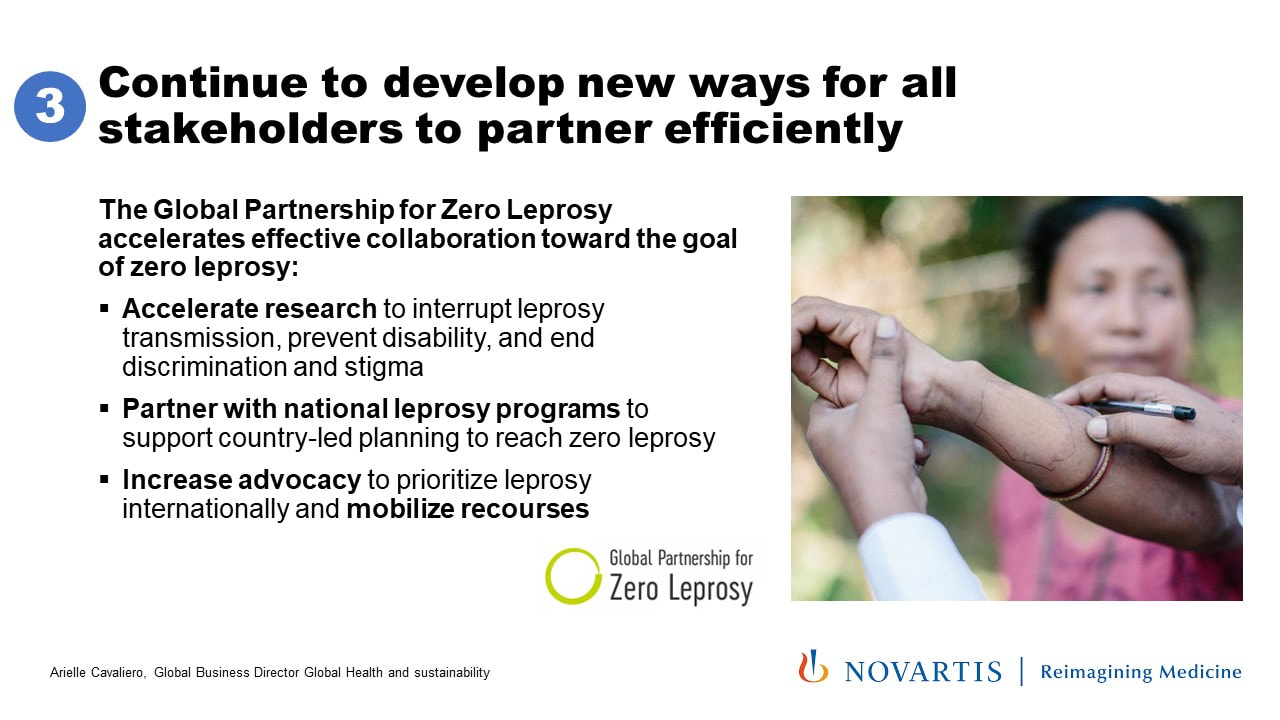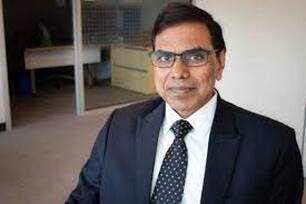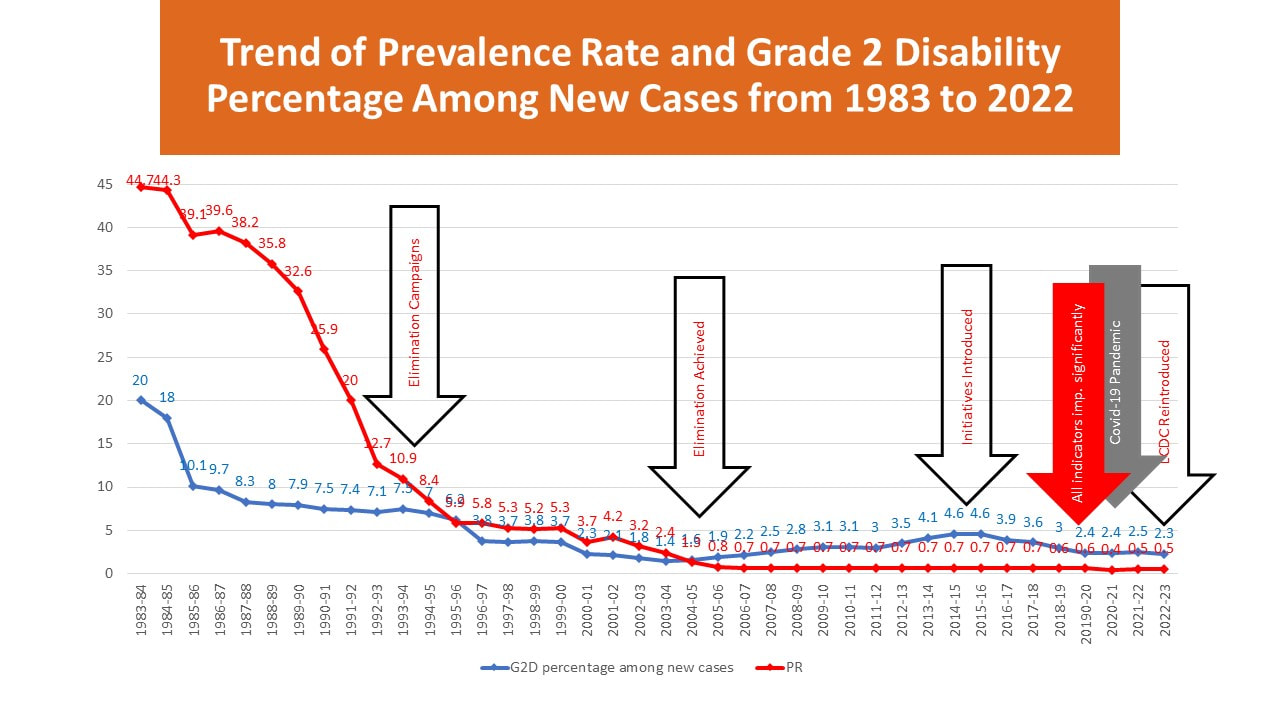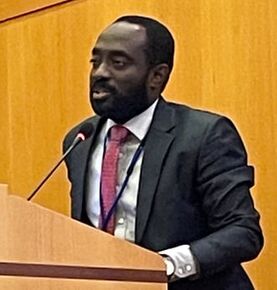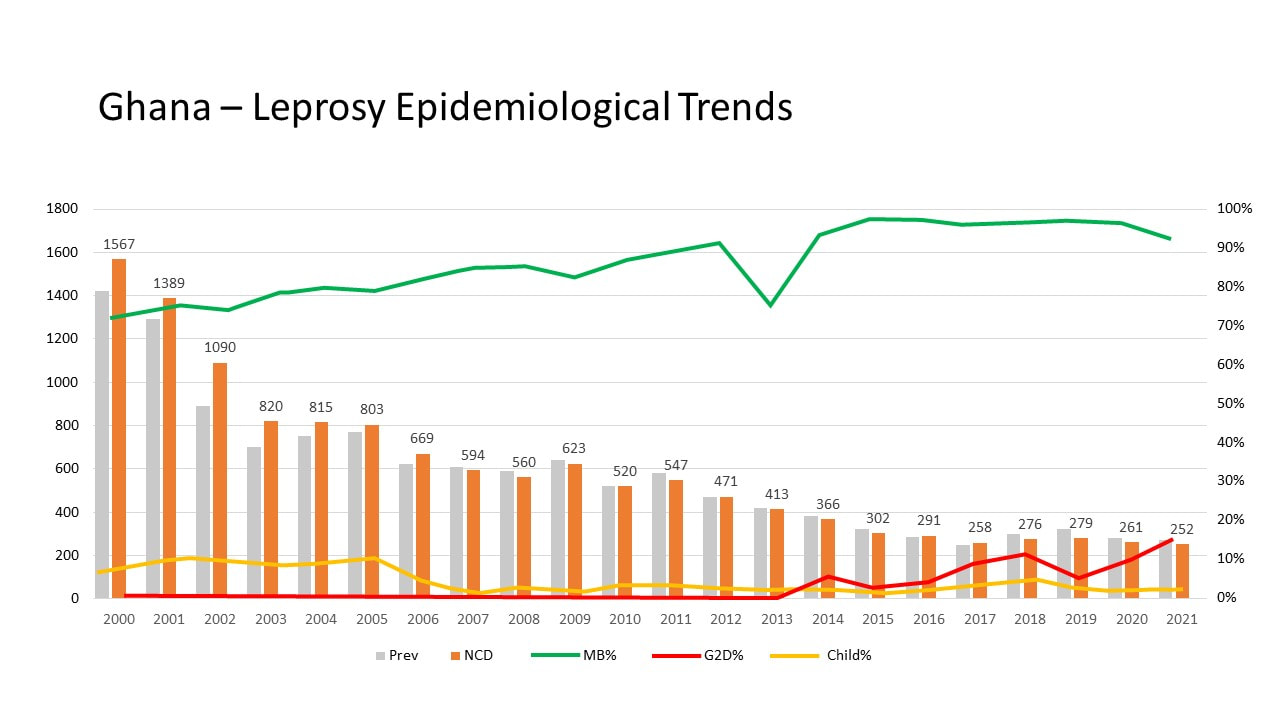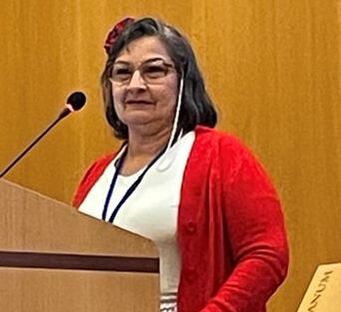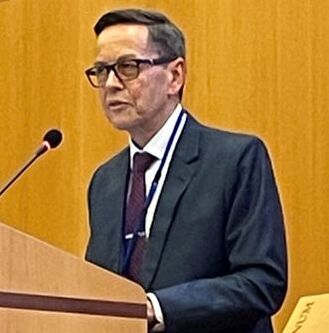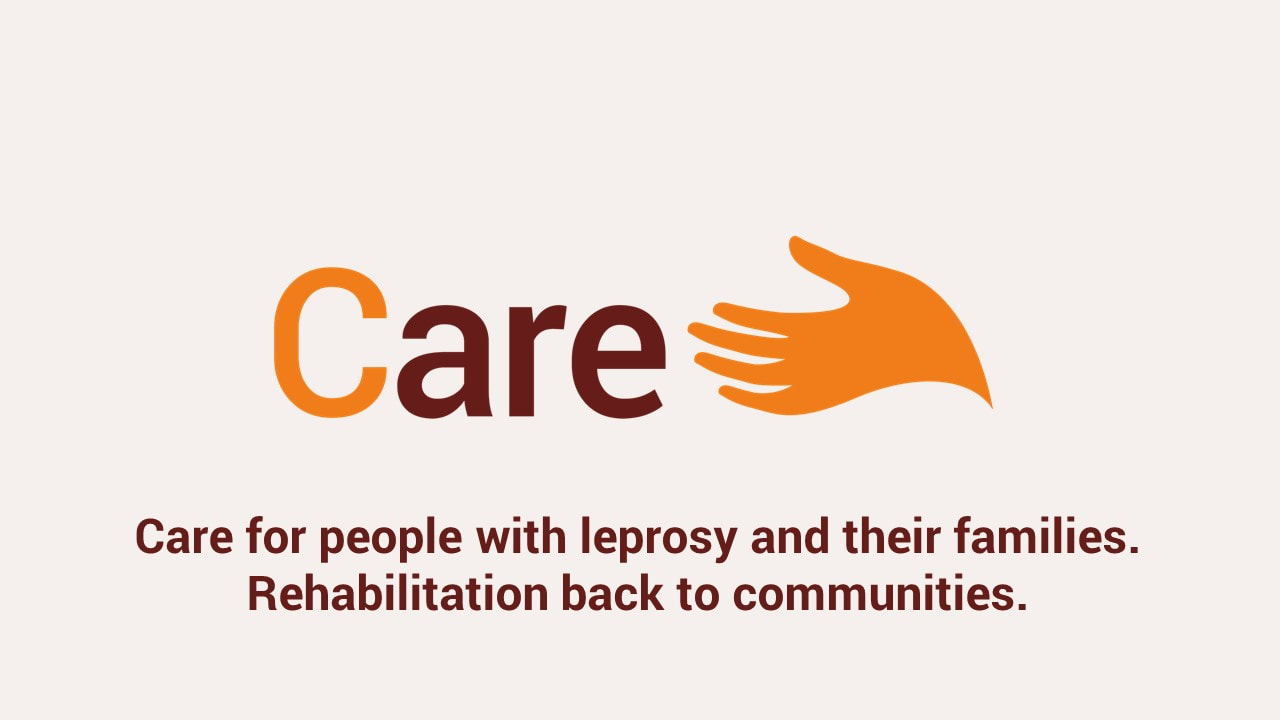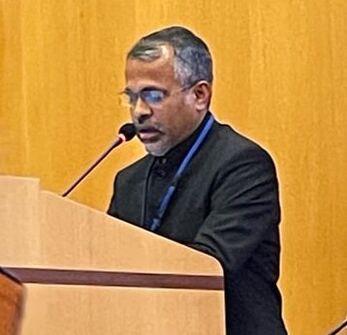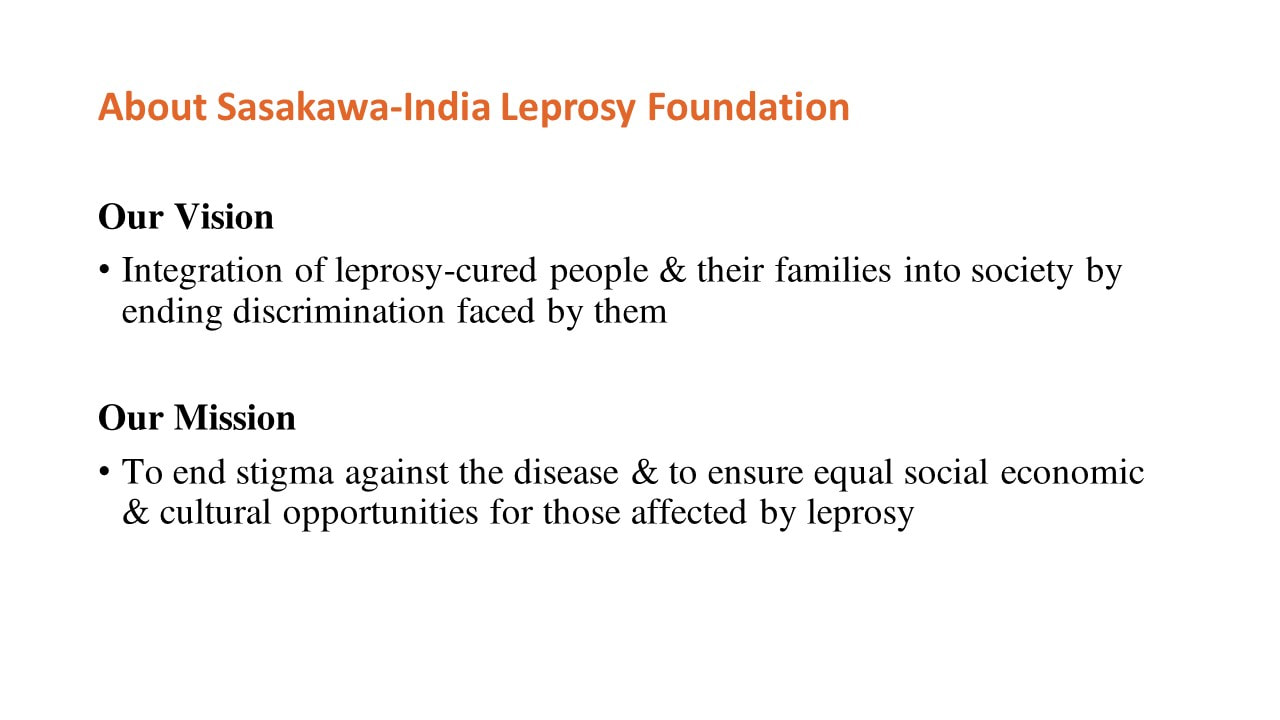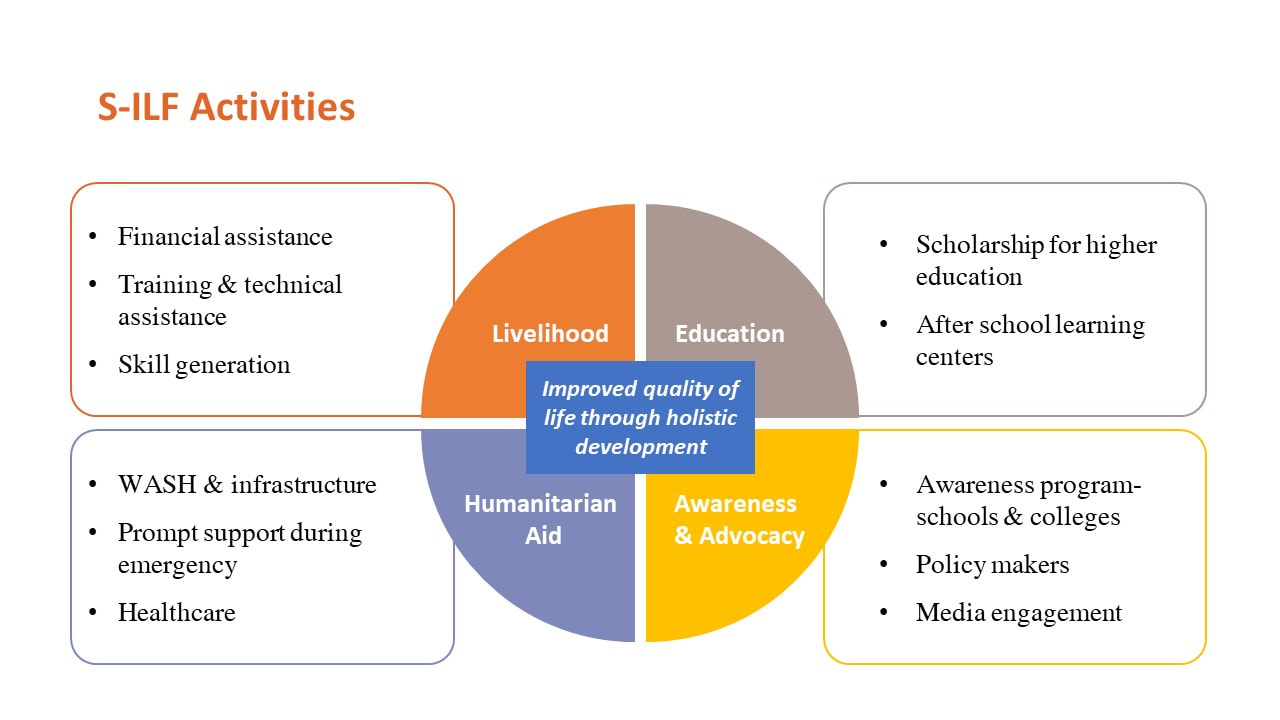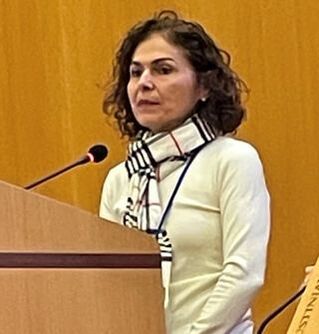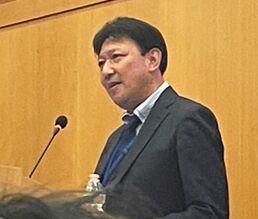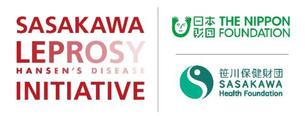Day 1: Monday January 23, 2023 (Augustinianum Patristic Institute, Rome)
Leave No One Behind
Leave No One Behind
Message by His Holiness Pope Francis
Never forget our brothers and sisters with Hansen's Disease. I hope that this conference will help gather voices from around the world and discuss measures that can be taken to further promote respect for human dignity. His Holiness Pope Francis
(read full message)
Greetings from the Organizers
|
The Symposium commenced with a powerful message from His Holiness, Pope Francis, read out by Sister Alessandra Smerilli, FMA, (Dicastery from Promoting Integral Human Development, Holy See.)
Sister Alessandra welcomed all delegates to the Symposium with a special greeting for people affected by leprosy. She thanked Yohei Sasakawa, Sasakawa Global Health Fund and Raoul Follereau for organising the Symposium. |
She urged delegates to renew their commitment to people affected by leprosy so that they may live as fully fledged members of society. She blessed all those affected and working in leprosy.
|
She cautioned governments that leprosy stigma leads to serious violations and urged us all to be good Samaritans, reaching out to the marginalised and abandoned in society and Leaving No One Behind.
|
|
Dr Thiebault argued that leprosy was not being taught in medical schools and knowledge of leprosy was being lost to the younger generation. He added that today, more than ever, we must fight against leprosy and not rest until zero leprosy had been achieved. He was inspired by Raoul Follereau's stubborn determination in the fight against leprosy.
|
Mr Lissoni said that the dignity of those affected by leprosy must be protected and that we should consider ourselves to be working with, not for, the most vulnerable.
Mr Sasakawa then thanked His Holiness the Pope for his support for World Leprosy Day every year. He expressed his condolences at the recent death of Pope Emeritus Benedict XVI. He thanked all delegates for attending.
|
He condemned the weight of self-stigma caused by society's ignorance and misunderstanding of leprosy. He concluded that leprosy was a human rights issue and that the Principles and Guidelines* must be followed to prevent further violation. He said that tens of millions of people were affected by leprosy and its disability - the numbers are not declining and had been worsened by Covid-19.
|
We launched our Don't Forget Leprosy campaign two years ago following the Covid-19 pandemic. This year, it's the 150th anniversary of Dr Armauer Hansen's discovery of the bacterium that causes leprosy. But we are still seeking a world free from leprosy discrimination and a world where No One is Left Behind.
*the UN Human Rights Council Principles and Guidelines on the elimination and discrimination against persons affected by leprosy and their family members.
Messages from Dignitaries
|
Mr Pinto (from the Morhan association of people affected by leprosy) said that it was with a mixture of sadness and great joy that he was attending the symposium. He said: the hands, feet, skin, eyes and nerves are seen as a disease. But the pain, desires and anxieties of people affected by leprosy make leprosy so much more than a disease.
|
Dr Mann talked about his many visits to people affected by leprosy, living in remote locations and how difficult it was to travel, often with no road access. He concluded that the lack of access to people affected by leprosy, was a real logistical problem in the fight against leprosy.
|
Mr Hughes said that the legal profession also wanted to make a better world, and he saluted the work of the delegates trying to achieve this outcome for people affected by leprosy.
|
|
Professor Hagen spoke by video link from Norway. She said that it was the 150th year since the discovery of mycobacterium leprae by Dr Armauer Hansen in 1873. His work paved the way for the treatment of leprosy. At that time, Hansen recommended early diagnosis and life segregation for people affected by leprosy which undoubtedly contributed to its stigma.
leprosy is the least contagious of all contagious diseases. We must combat stigma, a barrier to early diagnosis" said Professor Hagen. |
Mr Turk spoke by video link from Geneva. He emphasised that leprosy was a disease of those subject to the greatest inequality and marginalised by systemic isolation and discrimination. Leprosy needed an inclusive and rights based solution and said that together, we could make it happen.
|
Dr Ghebreyesus said that the World Health Organization was committed to see the end of stigma and discrimination against persons affected by leprosy.
Mr Sasakawa then launched the Global Appeal for 2023 with text read by Ms Letitia Cezar de Frota, Miss World Brazil 2022. |
Launch of the Global Appeal
Theme: Toward Zero Leprosy - keynote speech: Addressing the Current Situation and Remaining Challenges in Leprosy, Six Years after the Adoption of the "Conclusions and Recommendations"
|
Dr Fall pointed out that most national programmes relied on external funding which leads to underfunding. He reiterated, that we must maintain health-workers' capacity with assistive devices and dressing materials.
We need to do all we can to maximise social reintegration. We must use World Leprosy Day to raise our voices against stigma and discrimination" |
Dr Cruz spoke by video. She thanked the Holy See for cooperating with her mandate. She said that people affected by leprosy continued to experience discrimination from the 100 or so laws still in place. She added that women were particularly affected by prejudice and harmful stereotypes. She referenced public services and the justice system; access to opportunities for education and work.
|
Session 1: Zero Disease & Disability (Moderator: Dr Vivek Lal, Team Leader, Global Leprosy Programme, WHO)
|
Dr Johnson commented that the numbers don't take reality into account. During pandemic times, following a diagnosis, people with leprosy could not travel to get treated. Anywhere where there was economic hardship meant there was no access to treatment. He presented on the leprosy situation in Africa and what needed to be achieved to improve the leprosy situation in these countries.
|
Dr Saunderson pointed out that the LepVax vaccine (currently in clinical trials) had prophylactic potential as well as a therapeutic effect and taken with multidrug therapy (MDT), may prevent or delay nerve damage and reduce disability in people on MDT. He presented on interventions that prevent ongoing transmission of leprosy and the future potential vaccine, LepVax.
|
Ms Cavaliero said that there had been a 95% reduction in leprosy cases since 1980s but each year, 200,000 new cases appear and in addition, two to three million people live with disability caused by leprosy. She cautioned that we needed to keep leprosy in focus.
|
|
Dr Kumar, a member of GPZL's leadership team, presented by video on the trends on leprosy in India.
|
Dr Quao presented on Ghana's Country Partnership that showed the number of people diagnosed with leprosy in Ghana was decreasing. He concluded that the factors that contributed to Ghana's success in the Country Partnership included the critical infrastructure that was already in place along with leprosy NGOs and country coordinators and a stakeholder pool of national partnerships.
|
Ms Vasquez Acevedo reported that people affected by leprosy in Colombia had begun to rise up and overcome the many barriers and obstacles that they faced in life. She believed this accomplishment was possible through their strength and love. Felehansen, which is the National Federation of Associations of People Affected by Leprosy, in Colombia, does work that mattered and it will continue to develop.
|
Session 2: Zero discrimination (Moderator: Dr Takahiro Nanri, Executive Director of Sasakawa Health Foundation/ Sasakawa Leprosy Initiative)
|
Mr Morgan reported that there were (still) 123 laws in place that discriminated against people affected by leprosy that needed to be repealed. He added that there was no one particular approach to lobbying governments; it depended on the jurisdiction. He commented that TLMI offered to draft up new legislation to assist governments to repeal these laws. He added that an investment in time was needed to lobby governments. It was important to tailor and build relationships at the highest possible level to try to get these discriminatory laws repealed. It was TLMI's experience that some success had been achieved through lobbying in the past, but that there was still much to do. He said that the repeal of these laws in itself was not the end of the process; customs and traditions remained barriers at a local level.
He, added, however, that people with work and income were less likely to be discriminated against. He recommended self-advocacy - that individuals should get to know their rights and entitlements. Self-advocacy included the mobilisation of people affected by leprosy through self-help groups. |
Mr Sen explained that S-ILF operated in eleven states in India, to reduce discrimination, by empowerment through education and livelihoods. The children of people affected by leprosy were supported in their higher education with skills training, leading to financial independence and the ability to support their parents. S-ILF offers scholarship programmes, particularly in nursing, for which there is a great demand and, a particular aptitude amongst these young people. Adults in leprosy communities were supported by training programmes, so that they can stop begging. So far, S-ILF has supported 2,845 people through livelihood programmes.
S-ILF has a longer-term plan to work with leprosy-peoples' associations in India, to generate awareness of their leprosy programmes. |
|
Dr Rocha said that there were no discriminatory laws against people affected by leprosy in Brazil, but there were plenty of discriminatory practices, which were generally under-reported. She said that children were found living at home, because they had not been allowed to go to school. However, schools have handbooks on health which include leprosy awareness to try and prevent pupils affected by leprosy being subject to leprosy stigma.
She added that there were 82 self-help groups in Brazil. |
Panellist Dr Tanzina Islam, Deputy Program Manager of the National Leprosy Program, Ministry of Health and Family Welfare, Bangladesh
Dr Tanzina presented by video link. Leprosy figures had been static in Bangladesh, but in the north of the country, it was highly endemic. Activities for the reduction of social stigma were endorsed by the government. Self-help groups and leprosy peoples' associations also worked with the government. Different ministries were involved and, for example, housing was being provided for people affected by leprosy and allowances and rights were being upheld. The challenge was the use of the word "elimination."
Panellist Tesfaye Tadesse, Managing Director, the Ethiopian National Association of Persons Affected by Leprosy, ENAPAL, Ethiopia
|
Mr Tadesse said that ENAPAL was one of the most active leprosy people's associations, with 20,000 registered members in seven regions (which represented 80 per cent of the country). Their purpose was to fight against stigma and discrimination, to address socio-economic problems and to create multi-dimensional leprosy awareness.
He said that people affected by leprosy were poor economically, with no education or awareness. There was poor commitment by the government and other stakeholders in Ethiopia. Mr Tadesse showed a video containing a shocking example of two children with severe leprosy disability. Their mother had not taken her children to see a doctor because of her own fear of leprosy and its stigma.
He added that they needed to build capacity for organisational development: awareness raising, economic empowerment, educational support and to lobby the relevant authorities. |
Panellist Al Kadri, Chairman, PerMaTa Indonesia
Mr Kadri explained that PerMaTa was the leprosy people's association in Indonesia. He said that there was still stigma and discrimination found in Indonesia and that their society suffered from misconceptions and prejudice with considerable inhumane treatment of people affected leprosy for example, people affected were not allowed to leave their homes.
Mr Kadri said that people affected by leprosy suffered from a feeling of not being useful, of being treated differently from others, from having their needs ignored, and an expectation of being discriminated against and, as a result, they don't raise their voices. He wanted more public awareness of the stigma and discrimination being experienced. Dozens of people have joined PerMaTa and they were overcoming their self-stigma and self-discrimination.
He said that there was little knowledge about leprosy in society, a disproportionate amount of concern and insufficient leprosy healthcare services. He added that the government health department needed to take ownership of leprosy.
PerMaTa's capacity development was still low and they hope to collaborate with external agencies and organisations to increase it and learn how to fundraise. He added they needed to improve their professionalism to increase their support. Microcredits given by Sasakawa had enabled some economic development.
Mr Kadri said that people affected by leprosy suffered from a feeling of not being useful, of being treated differently from others, from having their needs ignored, and an expectation of being discriminated against and, as a result, they don't raise their voices. He wanted more public awareness of the stigma and discrimination being experienced. Dozens of people have joined PerMaTa and they were overcoming their self-stigma and self-discrimination.
He said that there was little knowledge about leprosy in society, a disproportionate amount of concern and insufficient leprosy healthcare services. He added that the government health department needed to take ownership of leprosy.
PerMaTa's capacity development was still low and they hope to collaborate with external agencies and organisations to increase it and learn how to fundraise. He added they needed to improve their professionalism to increase their support. Microcredits given by Sasakawa had enabled some economic development.
PerMaTa was encouraging people affected by leprosy to be agents of change and to demonstrate their abilities, that they were not a problem but the source of a solution."
Wrap-up
In summing up, Dr Nanri said that he had taken on board Al Kadri's comments that people affected by leprosy should become agents of change but they needed support to build their capacity. It was clear that a sustained level of political commitment was required by governments (Brent Morgan) and that people affected by leprosy needed education and livelihoods (Gaurab Sen). Activities that face stigma and discrimination must be based on social inclusion (Margarida Rocha). Clearly, leprosy is not just a medical problem - there were social and psychosocial issues that needed a multi-dimensional approach to achieve Zero Leprosy (Tesfaye Tadesse). |
If we keep moving forwards, we can make changes" he concluded.


